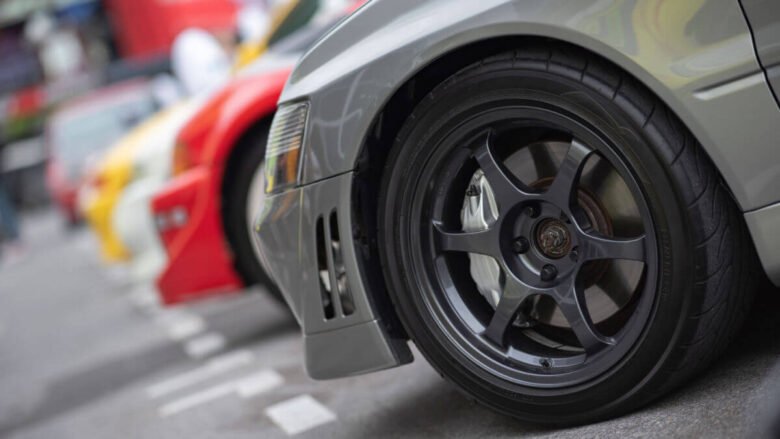Japanese auctions provide an efficient method for purchasing cars at wholesale rates without dealership markups, with full transparency through inspection reports and an array of vehicles available at auctions.
Fareena Corporation Japan can assist first-time buyers in understanding auction grades and the process, to secure high-quality vehicles at prices suitable to your budget.
1. Know Your Limits
Before participating in any auction, it is wise to set clear budget limits in order to prevent overspending and making decisions you might later regret. Furthermore, it would be prudent to observe several auctions prior to bidding in person so you can familiarize yourself with both the bidding process and vehicle specifications.
An auction sheet contains more vital details than just condition, price and model year; for instance, its model year should also be noted alongside registration year and manufacturer year – this information helps identify vehicle models as well as release dates quickly and clearly.
Remember that most cars offered for sale at Japanese auctions are trade-ins, meaning they have passed inspection but will have been exposed to long transportation and shipping times – sometimes sitting idle on wharves for as much as one or more months – which may expose hidden damages not evident upon initial inspection.
Therefore, it’s essential to conduct an in-depth evaluation of any vehicle you wish to purchase and take note of any odometer discrepancies or import costs before placing bids – these additional expenses could significantly add to the total price tag of your purchase. In order to avoid these pitfalls, Fareena Corporation Japan provides excellent car exporter services which will guide you through the auction process while finding quality vehicles at affordable prices.
2. Get a Pre-Purchase Inspection
The Japanese car auction system offers millions of high-quality vehicles each year, yet photos and inspection reports provided by auction houses don’t always tell the full story; whether due to an auction house’s use of an opaque grading system or details that go overlooked in its inspection report; pre-purchase inspection is essential in avoiding unexpected surprises when making your purchase decision.
An expert inspection before bidding can help ensure you make an informed decision and protect your investment. This is particularly important with used cars not CPO or covered under warranty; often significant problems aren’t visible to the naked eye but an experienced inspector can identify potential repairs before they become costly repairs later.
Pre-purchase inspections are equally essential when buying cars outside dealerships or auction, such as those bought at auction. Retail cars are typically inspected by their technicians who may have an incentive to sell it and overlook or downplay certain damages. Furthermore, Japanese-written auction sheets and documents can be difficult to interpret accurately; having your importer translate and explain these will make your experience smoother while they also check history and export certificate data for fraudulence or other irregularities.
3. Verify the Odometer
Japanese auction systems provide buyers with access to high-quality vehicles at bargain prices; however, buyers do run some risks when purchasing cars in Japan. Odometer tampering and hidden accidents are both frequent issues; however there are tools available that can help buyers verify a car’s history prior to purchase; services include inspecting its auction sheet as well as reviewing its history and verifying odometer readings.
Verifying an odometer reading when purchasing a used vehicle is an integral step, as accurate readings help establish value and protect you against fraud. Auction sheets typically include an asterisk (*) to indicate any changes, though this doesn’t always indicate clocking; replacement could have occurred for valid reasons; this simply serves to protect the buyer.
Another way of verifying mileage on a vehicle is by reviewing its Japan Export Certificate. This official document includes an odometer reading at time of export that can be cross-referenced with auction sheets and service records. Many import services, like Autocom Japan, provide this service as part of their verification process – in some cases even providing readings from every re-registration dating back to when it was brand new! For maximum peace of mind in knowing its history.
4. Research the Import Costs
Japanese auctions can provide you with an excellent way to score a high-quality vehicle at a fraction of its local cost, yet still enjoy savings thanks to shipping fees and import taxes that may add up quickly – they could offset any savings realized when purchasing directly. But you should do your homework and work with a reliable importer so as to minimize these expenses as much as possible.
Understanding the Import Process
For buyers unfamiliar with importing vehicles, the process can be intimidating and complex. Thankfully, experts exist that can guide buyers through all its details – from finding an appropriate car and transporting it directly to their chosen port of choice.
Hiring a professional importer offers several advantages over purchasing directly. First and foremost, they will help negotiate better deals at Japanese auctions on your behalf, potentially saving thousands over time if purchasing multiple cars. Furthermore, they can assist with avoiding potential odometer fraud and hidden damages and selecting an optimal shipping method such as container or Roll-on/Roll-off (RoRo). Finally, they provide valuable insight into specific makes and models of vehicle you might be searching for.




